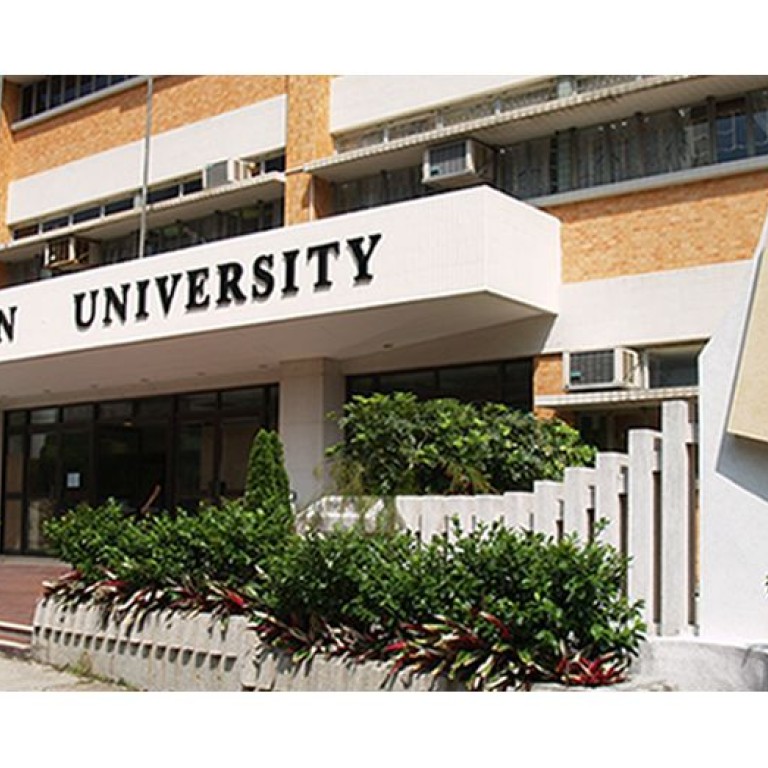
Implementing Interdisciplinarity in Evidence-Informed Practice
Shue Yan keeps abreast of educational trends towards a competitive knowledge-based society in Hong Kong.
[Sponsored Article]
Advancement in science and technology and the economic liberalization are moving our world rapidly towards a global knowledge-based economy. Being an advanced and highly competitive economy, Hong Kong is accelerating efforts to develop the city as a knowledged-based economy, where knowledge as embodied in human capital and in technology is a vital source of economic growth and sustainability. To catch the tidal wave for our city’s transformation, Hong Kong Shue Yan University fully recognizes that it has an important role to play in a modern knowledge society, generating evidence-based knowledge to pursue real world impact. In order to bridge academic research to real world solutions and enhance the relevance of research to practice, Shue Yan considers interdisciplinarity and evidence-based practice its strategic direction in research and teaching. ‘While an interdisciplinary framework enables our teachers and students to place the problem in a broader conceptual context, evidence-based practice allows the validation of research findings in real-life practice. Widening evidence-based practice in an interdisciplinary framework would further strengthen our University’s research profile and outputs, and consequently render impetus to better inform our teaching through research.’ said Prof. David Yeung, Head of Business Administration and Founder of the Centre of Interdisciplinary Research in Evidence-Based Practice at Shue Yan.

Fostering Understanding and Interest in Interdisciplinary Research in Evidence-Based Practice
Following the success in constructing an interdisciplinary research platform in 2015 to provide focused and in-depth exposure to its academics and students in interdisciplinary research, this year, Shue Yan has subsequently established the Centre of Interdisciplinary Research in Evidence-Based Practice to build up its capacity and broaden its endeavour in knowledge transfer. “Building research-informed, knowledge-based economy is not a numbers game. It is about nurturing talents and facilitating the transfer of scientific knowledge into practical use. The Centre will continue to bring in experts, including renowned scholars and reputable professional practitioners around the world and across the fields to share their experience and advice in interdisciplinary and evidence-based research. We believe these scholarly interactions and knowledge exchange activities help embed a culture within the University that supports transfer of knowledge with industries and brings about betterments of our community and businesses sector.” Prof. Yeung continued.

Shue Yan will enroll the first cohort of MPhil and PhD fellows in 2018
With its strong foundation and competitive edge in providing vocational education and trainings, Shue Yan has a long and good track record of engaging in knowledge transfer through its research, teaching, learning and professional practices. In 2018/19, the University will offer its first MPhil and PhD programmes, with ‘Interdisciplinarity’ as a core component in the curriculum. Prof. Catherine Sun, Academic Vice President of Shue Yan said, “We endeavor to strengthen our base on which our research-informed teaching culture can be cultivated. By encouraging closer links to be made between research and teaching, research findings and knowledge can be translated into the teaching of our vocational academic programmes. Shue Yan not only expands the supply pool of places in postgraduate programmes by research in Hong Kong, but also helps to nurture young researchers for the community. We believe the programmes provide valuable participatory and active learning experiences for students, more importantly, we want to empower our teachers so that they can leverage on their researching prowess to disseminate scientific information and really impact their students.” On November 17, 2017, the Chief Executive in Council approved Hong Kong Shue Yan University to award degrees for six MPhil and six PhD programmes in areas of English, Chinese, History, Economics, Psychology and Sociology.

Active Participation in Public Policies and Professional Practices Research
Shue Yan also acts in partnership with local communities, industries, non-governmental organisations (NGOs) and the government to generate, disseminate and apply knowledge. Most research centres in Shue Yan are devoted to interdisciplinary empirical research undertaken to enhance professional practice and social policy making. Numbers of research projects related to counselling, enterprise and social development, legal and public policy, history and cultural policy that led by Shue Yan academics have fully reflected the University’s dedication to knowledge transfer and enthusiasm of its faculty in serving the society. ‘We also consider it is the University’s social responsibility to use faculty members’ research findings to improve professional practice and public policies, as well as to support cultural pluralism and sustainable development.” Prof. Sun continued.
Shue Yan is expanding its capacity and continues to take ownership of carrying out knowledge transfer in the University. Apart from the existing research centres, more new laboratories providing a wide range of interdisciplinary and evidence-based research such as School Counselling and Psychology Laboratory, Positive Technology and Virtual Reality Laboratory, Social Psychology and Well-Being Laboratory will be in place in 2018.
